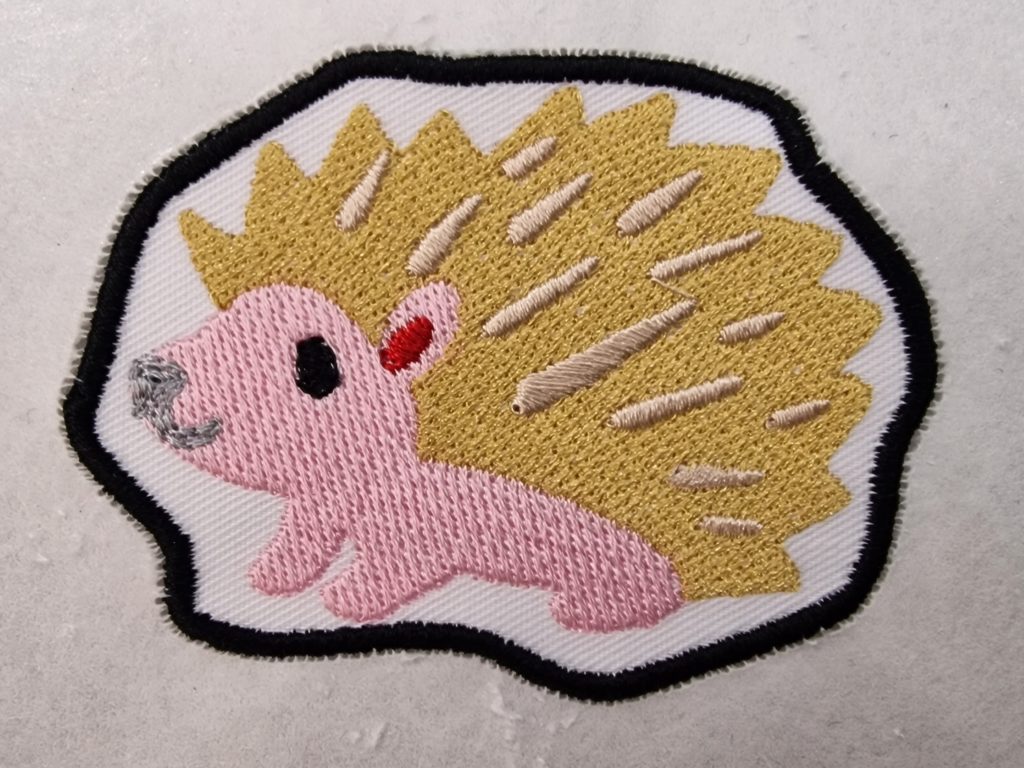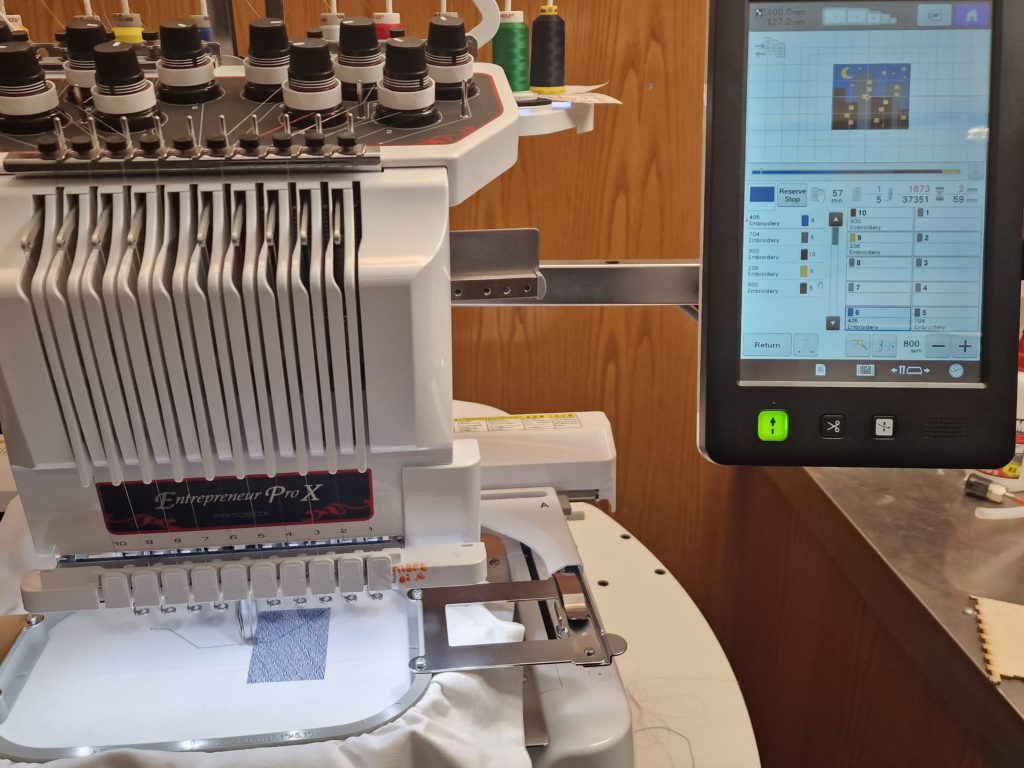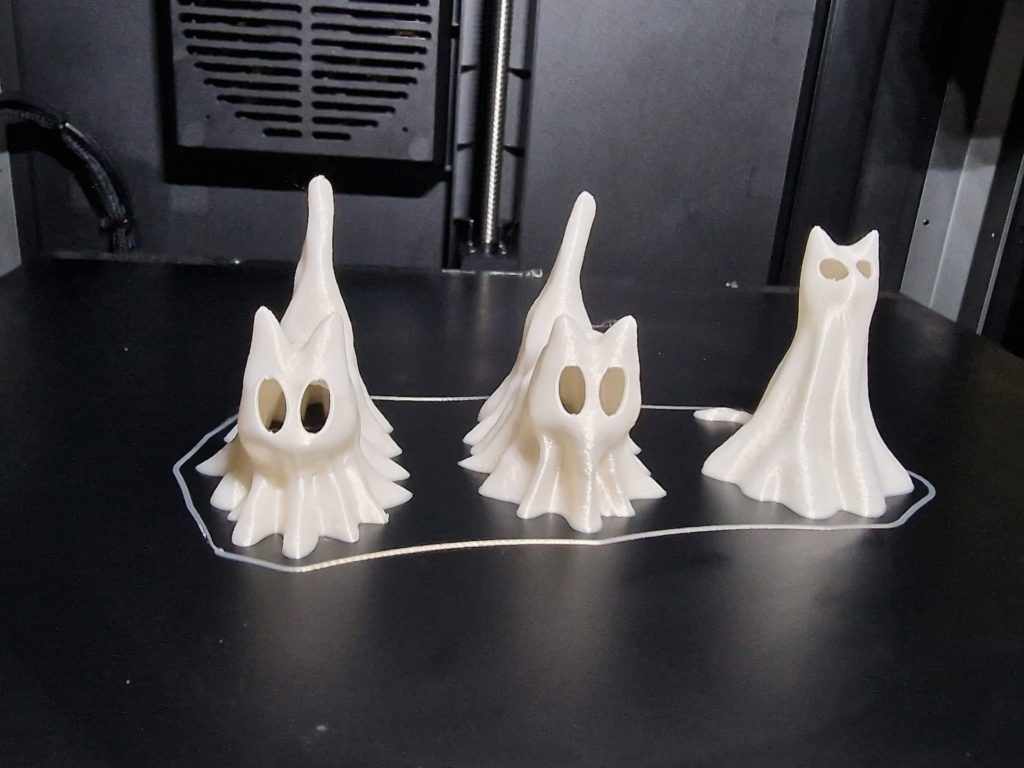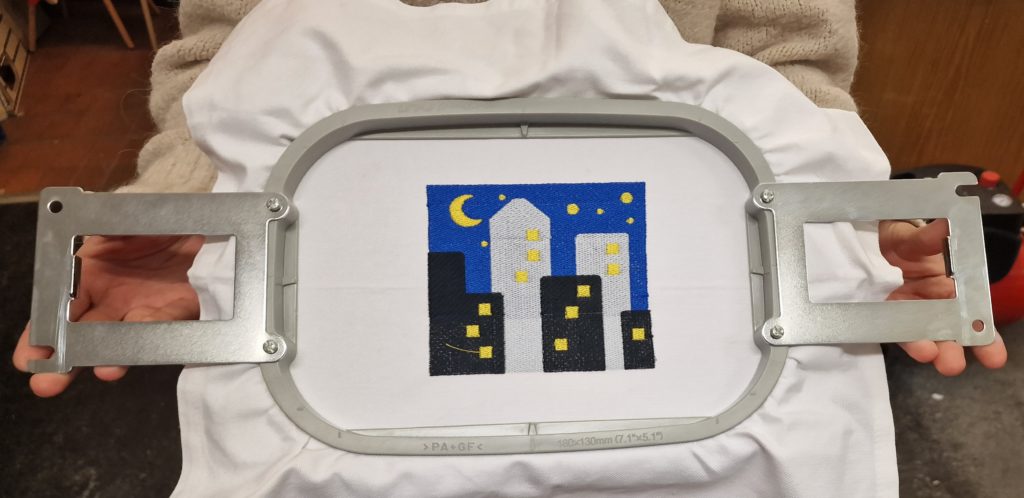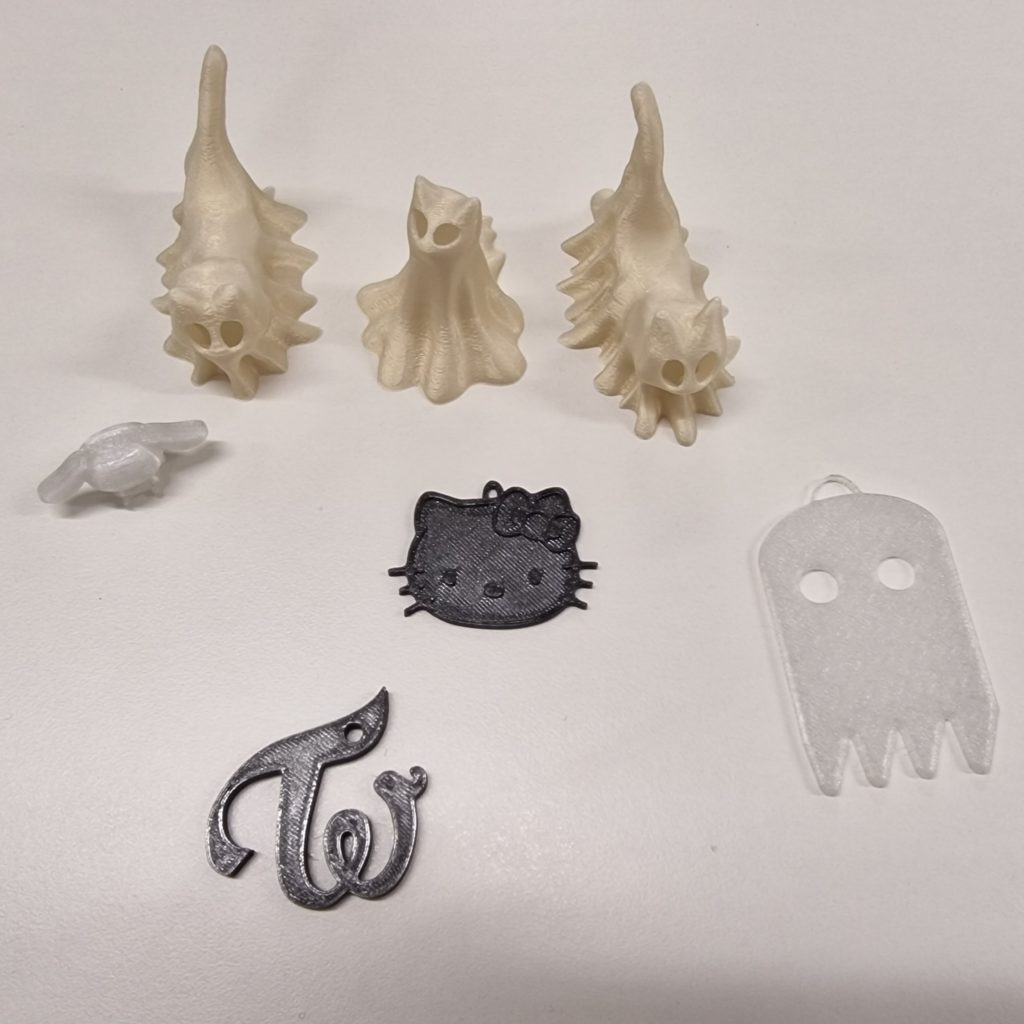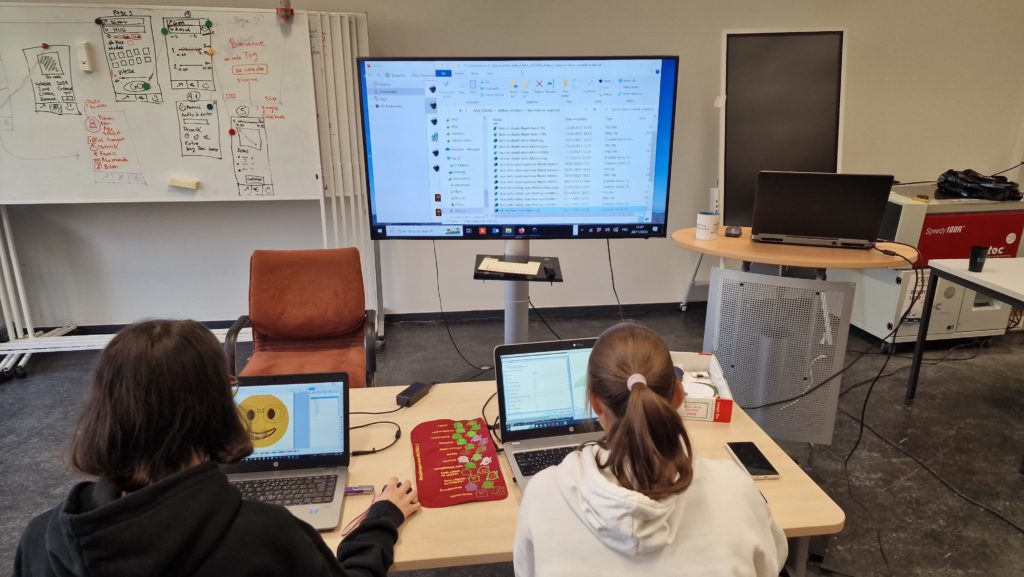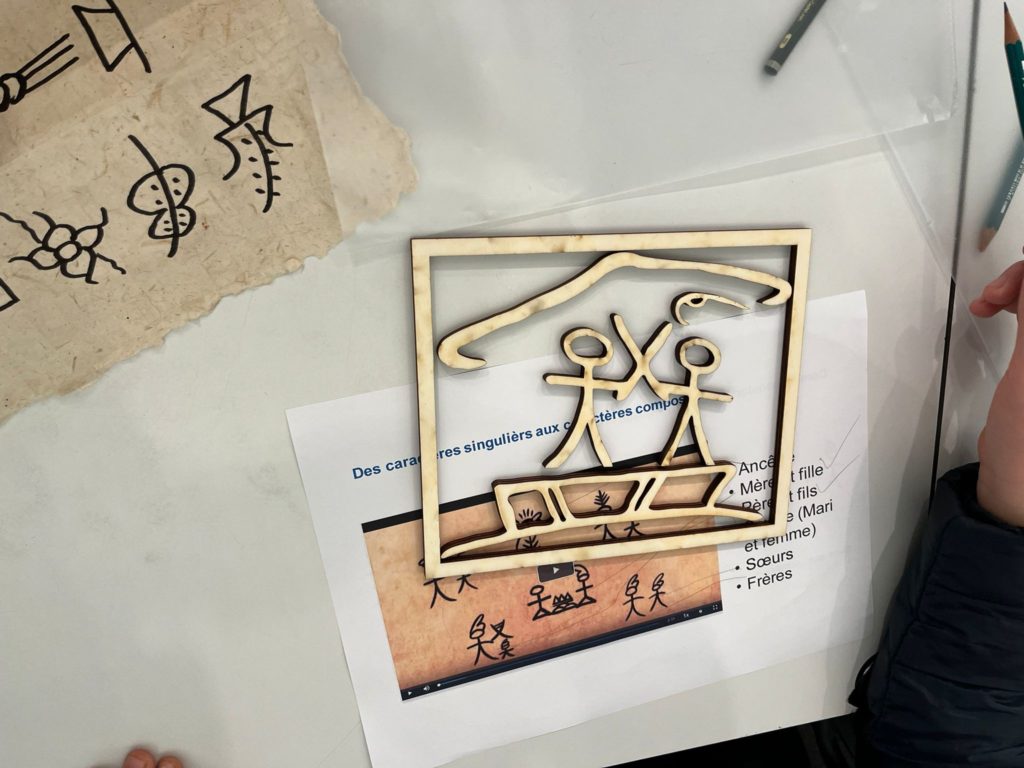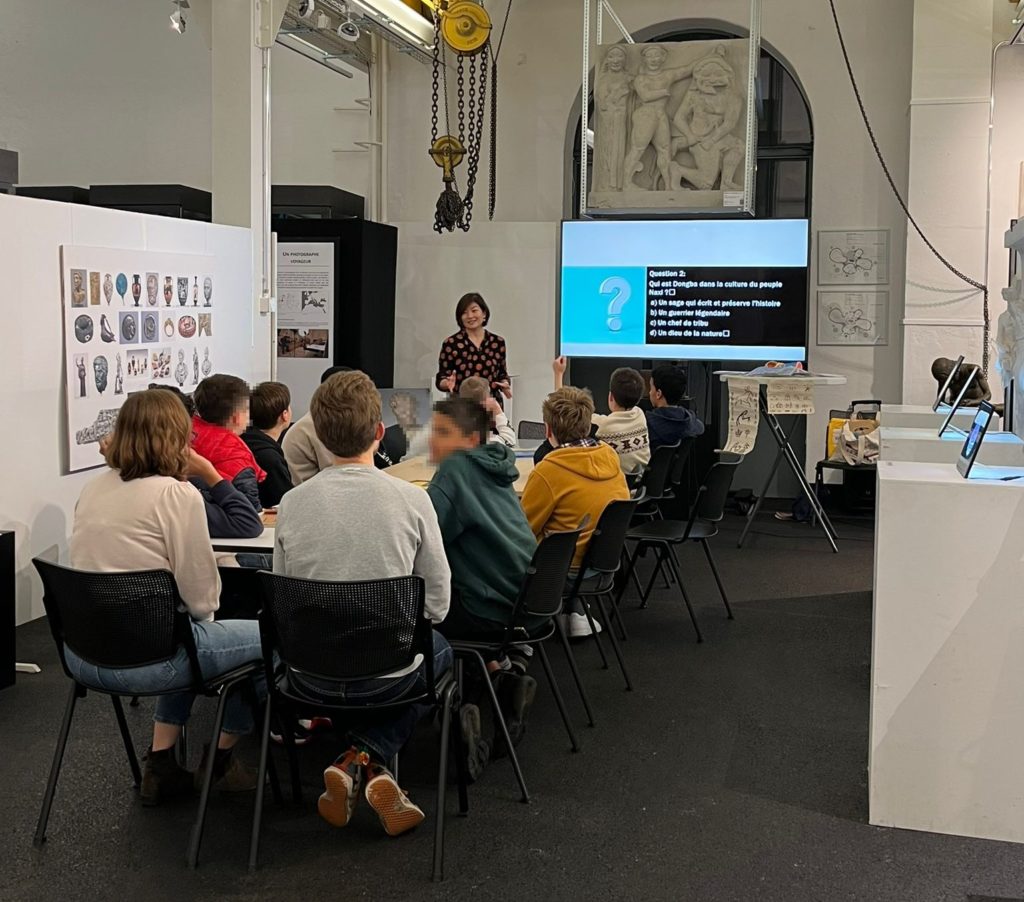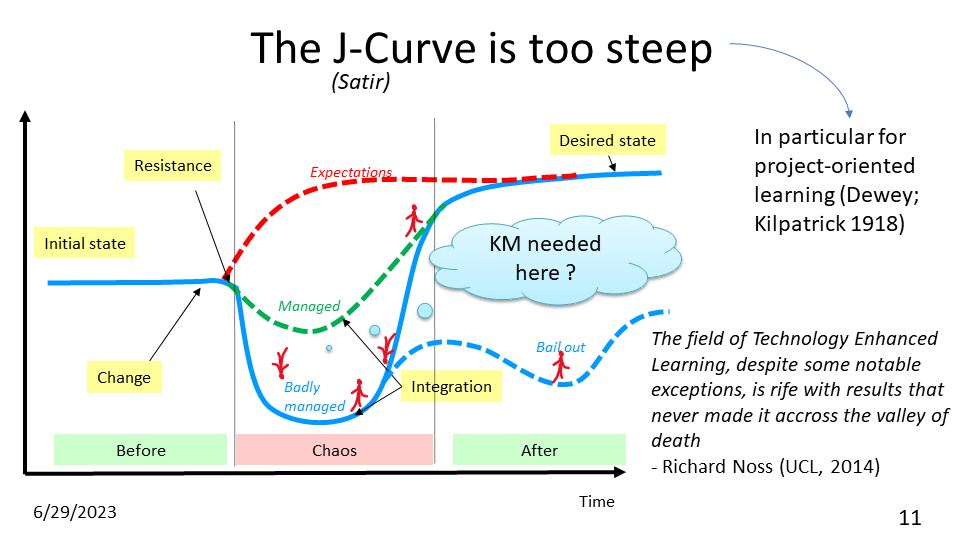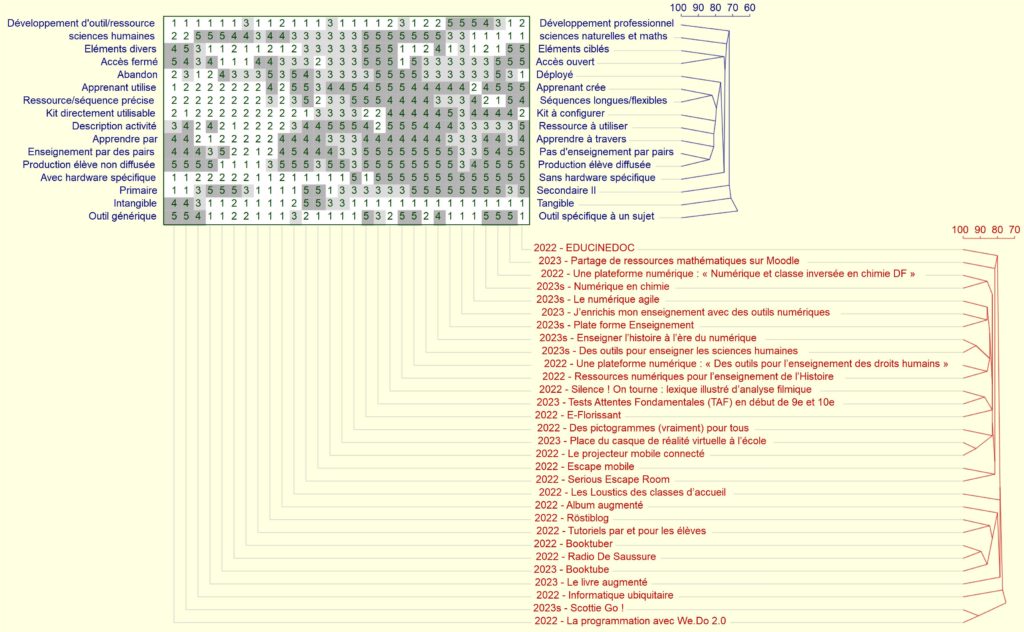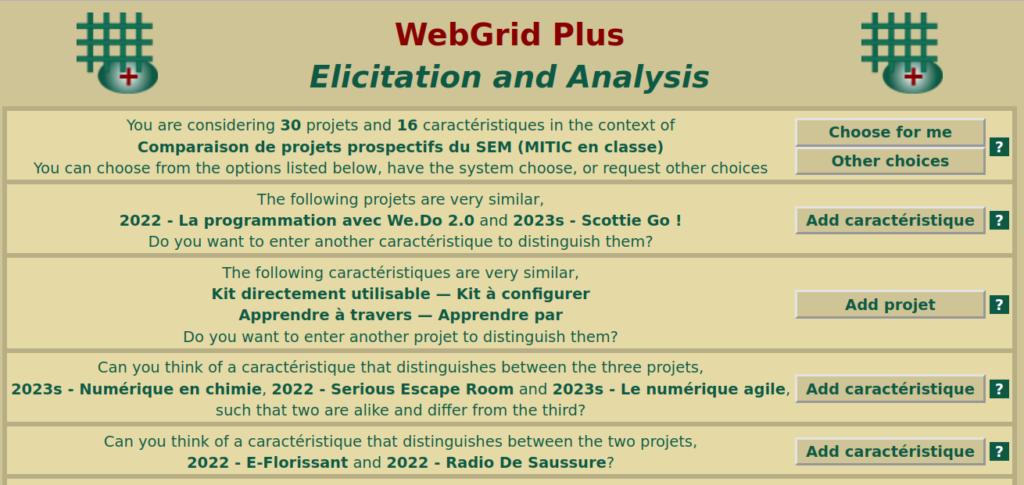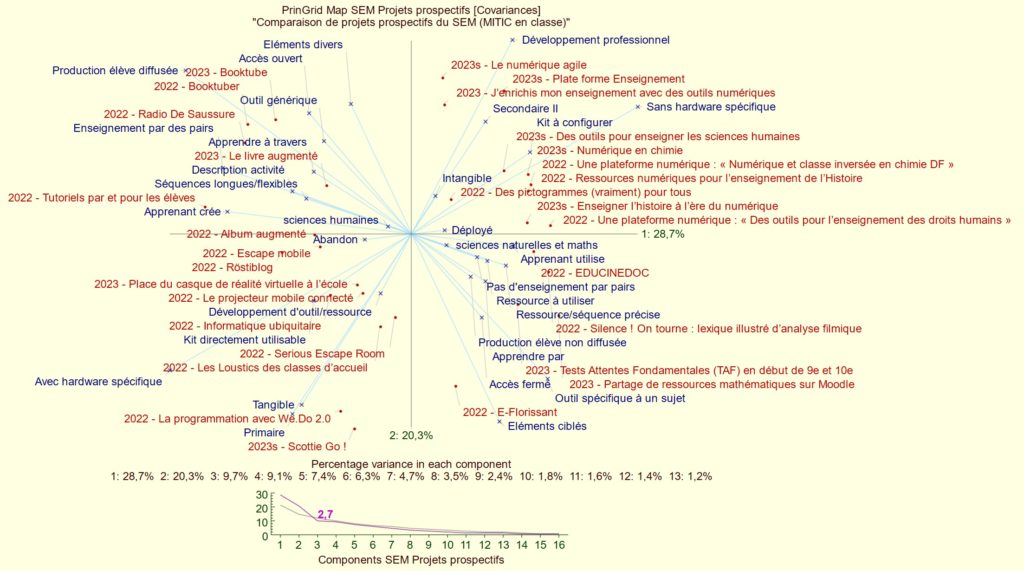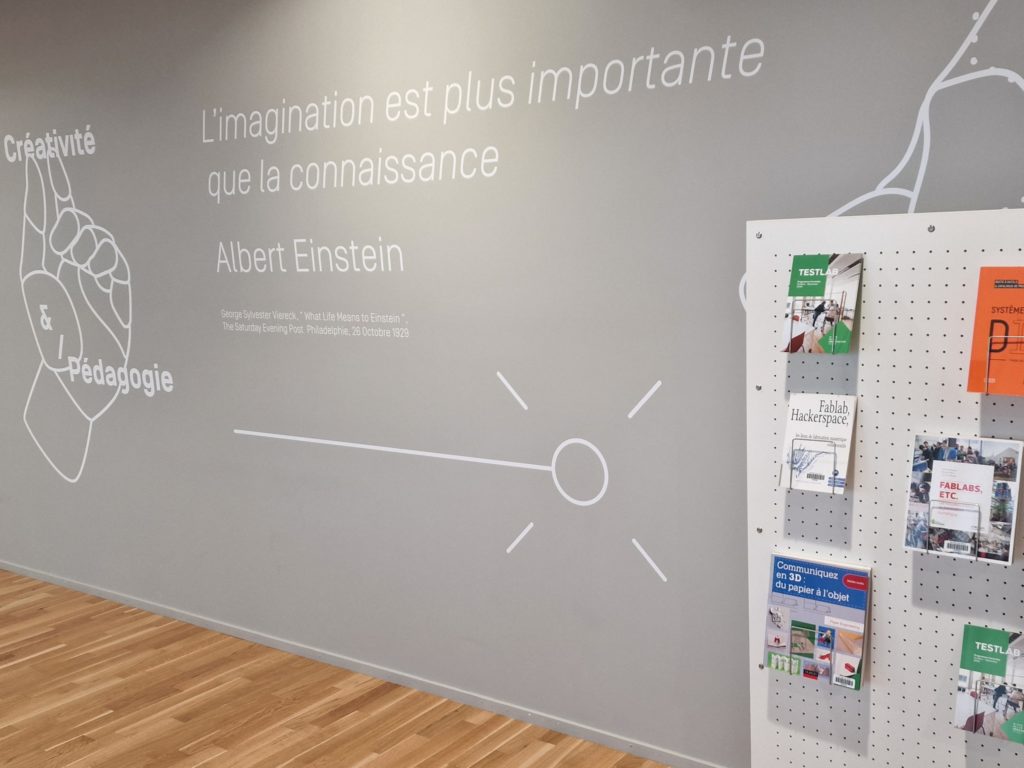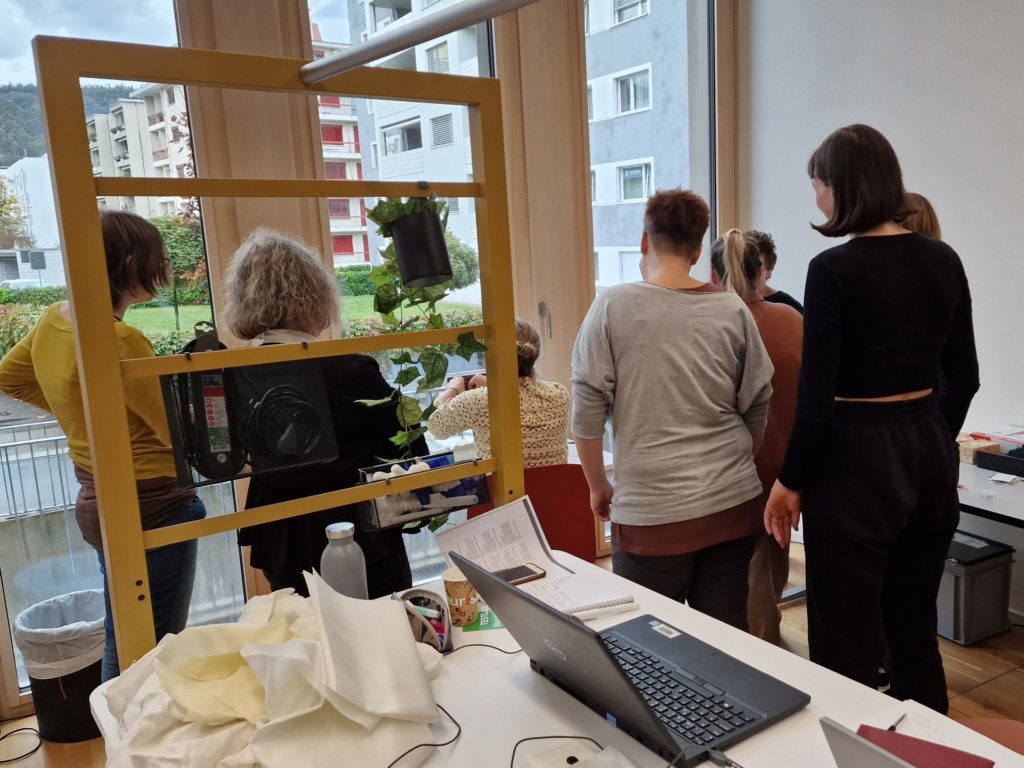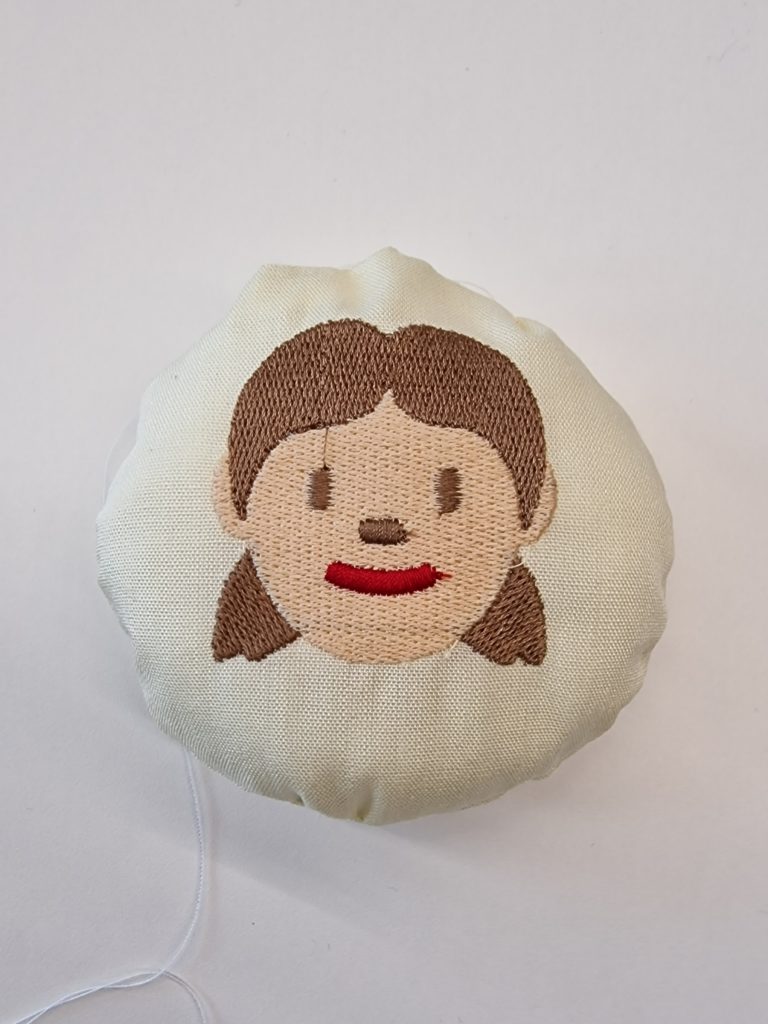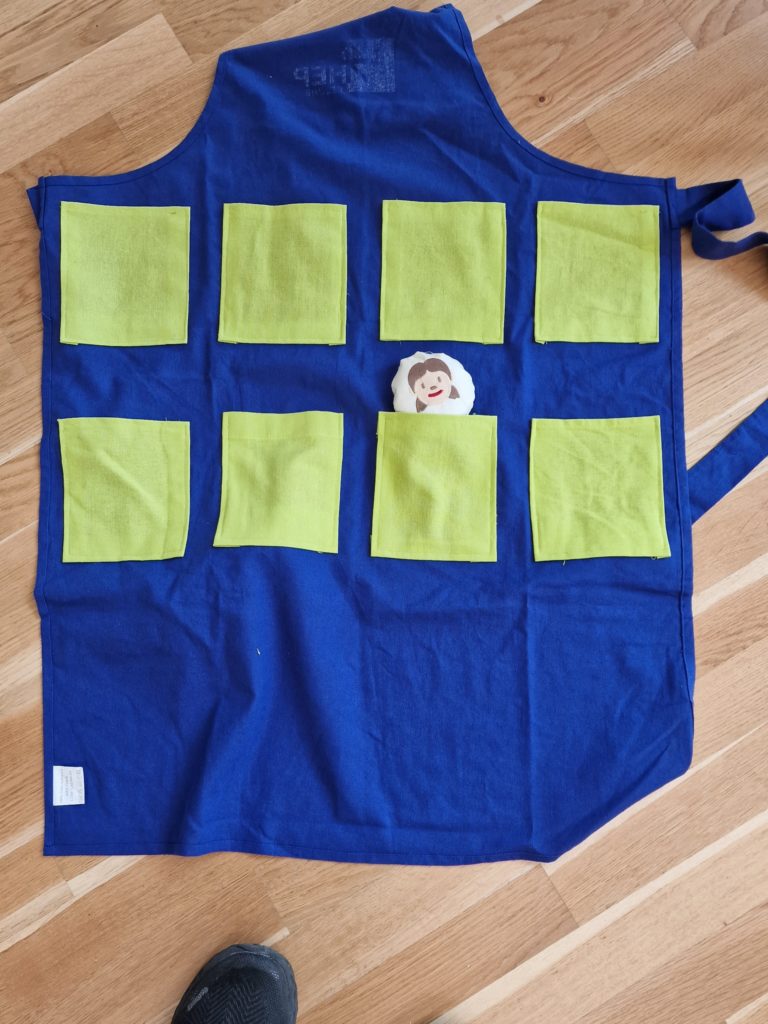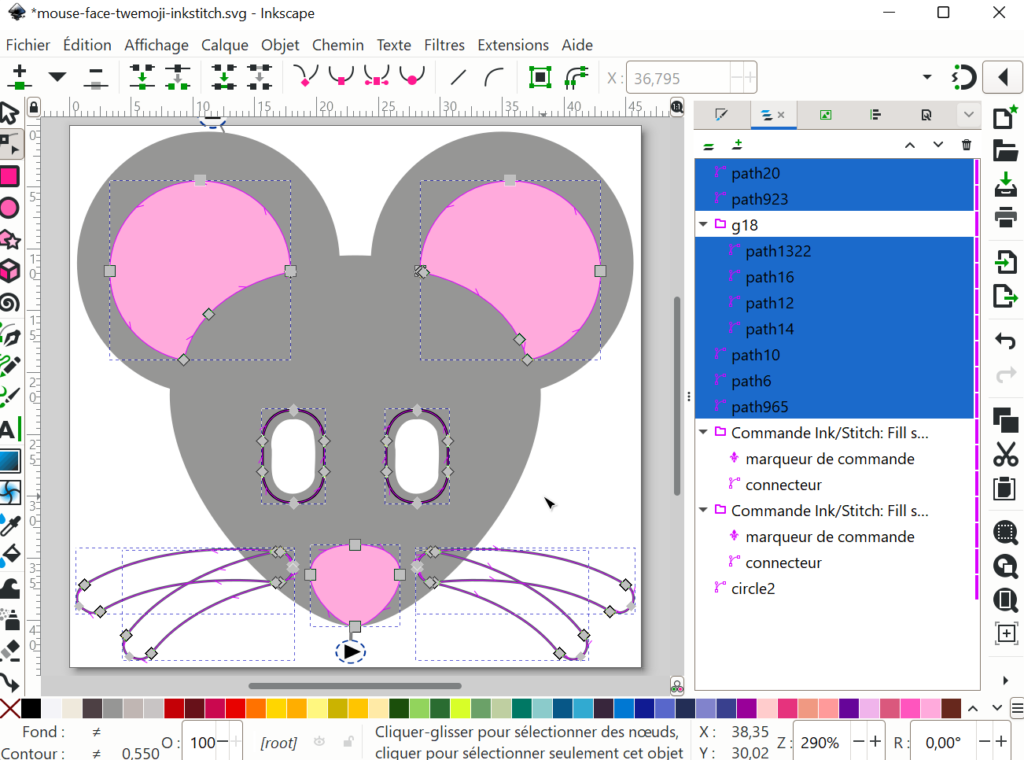Daniel Schneider, en tant que résident au faclab UniGE a organisé trois prestations dans le cadre du mois mode durable organisé par la ville de Lancy en mars 2024. Les participant-e-s ont pu amener des vêtements à réparer ou a embellir avec une broderie.
On a amené deux brodeuses, la Brother PR1050X du Faclab à 10 aiguilles et la Brother PR1X à 1 aiguille de Arbores Tech. Deux volontaires du Faclab, Sarah et Stacy, faisaient partie de l’équipe d’animation et les collaborateurs de la commune de Lancy et du FacLab nous ont aidé à charger et à décharger les brodeuses.
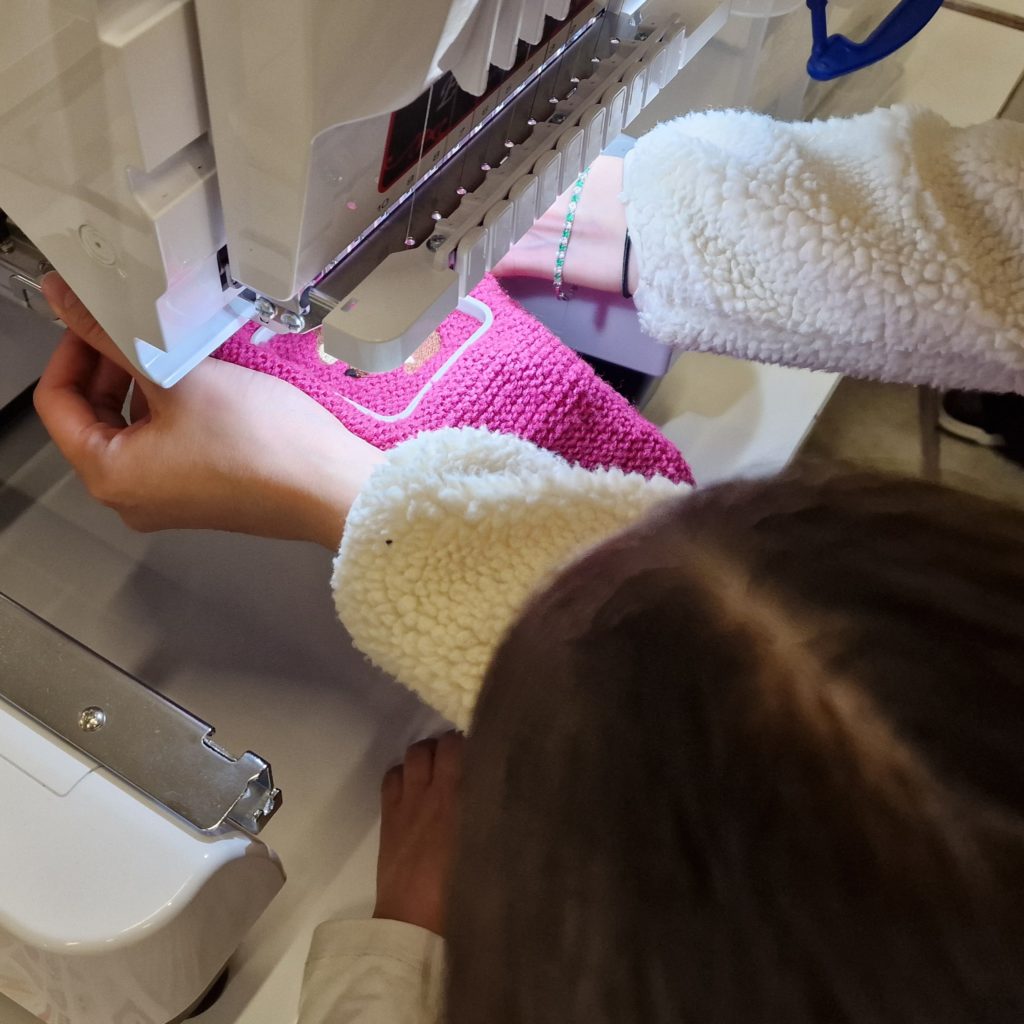
Les participant-e-s on eu choix d’une cinquantaine de motifs qui ont été numérisés à partir dessins libres de polices emoji et Twitter, Microsoft et Google:

Et voici une partie du pull “test/démo”

La première intervention a eu lieu le 8 mars 2024 dans la maison de quartier du plateau. De 19h à 20h30 on a brodé des emojis sur des vêtements. Comme toujours dans ce genre de manifestation peu de gens lisent les invitations et une seul personne avait amené un vêtement à réparer (!). Du coup, on a fait de la customisation qui est aussi une façon de revaloriser un vêtement. On a surtout brodé pour des enfants. Ils et elles ainsi que leur parents étaient très heureuses du résultat.
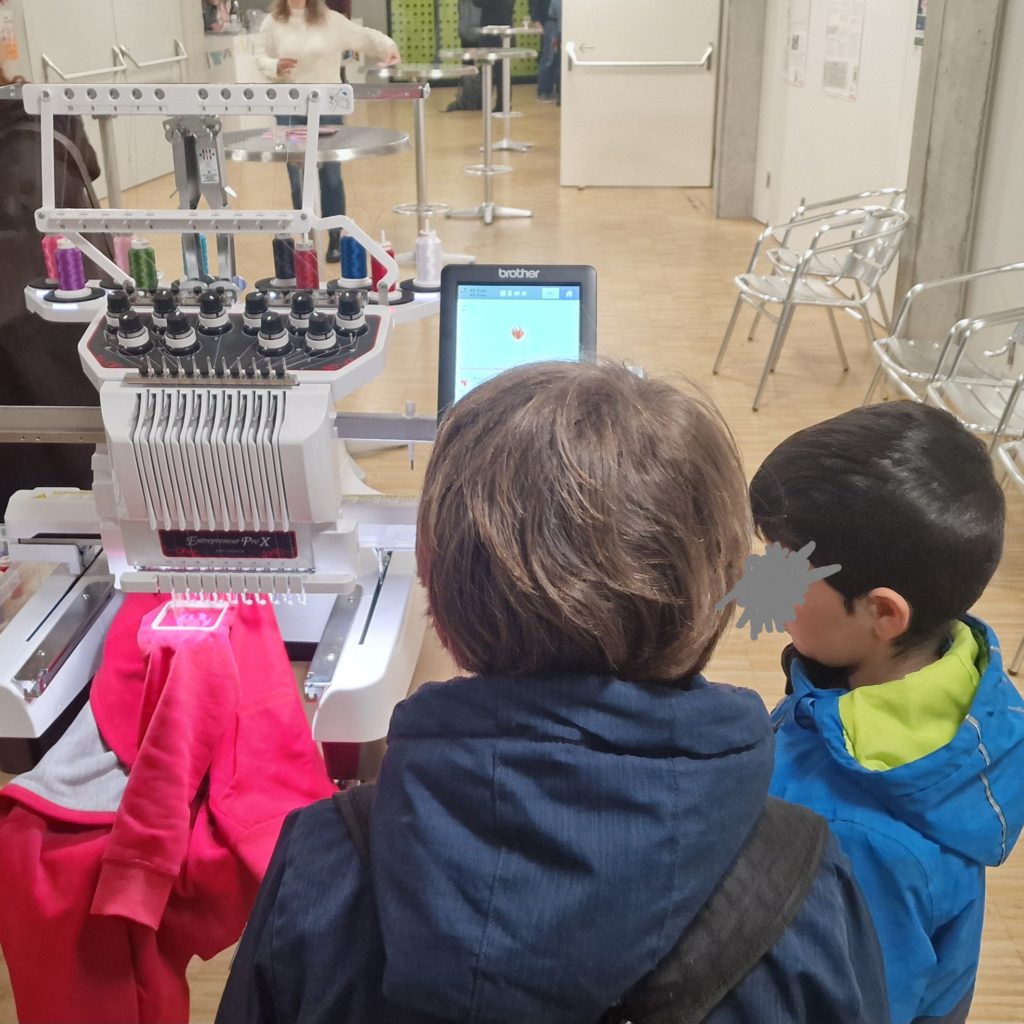
Les adultes trouvaient le concept très intéressant et ont apprécié la qualité des broderies ainsi que nos explications.

Ensuite, le 21 mars, on a animé un atelier mode durable dans le cycle d’orientation Grandes-Communes à la Lancy, selon le même principe que la soirée à la maison du quartier 2 semaines plus tôt. En une heure, on a brodé une dizaine de motifs. Un groupe de 14 élèves a pu se faire broder des motifs emoji sur des tote bag. En tout, environ 70 élèves étaient exposé-es au concepts et techniques de la mode durable. Il y a avait 4 autres ateliers en parallèle, dont la broderie manuelle.
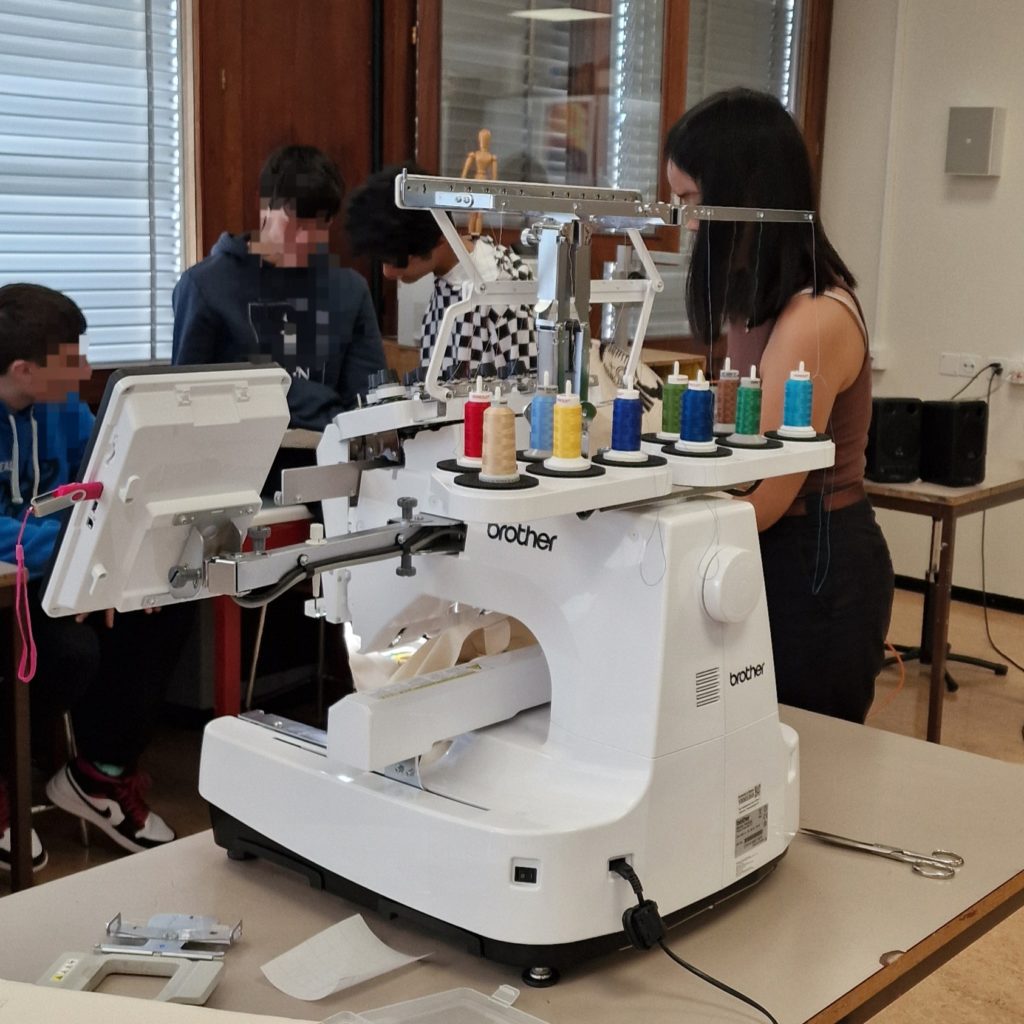
La soirée de clôture comprenait un public averti qui a amené des vêtements avec des trous a réparer et on était un peu débordé. On a du ajouter une heure au planning, sans pouvoir satisfaire tout le monde….
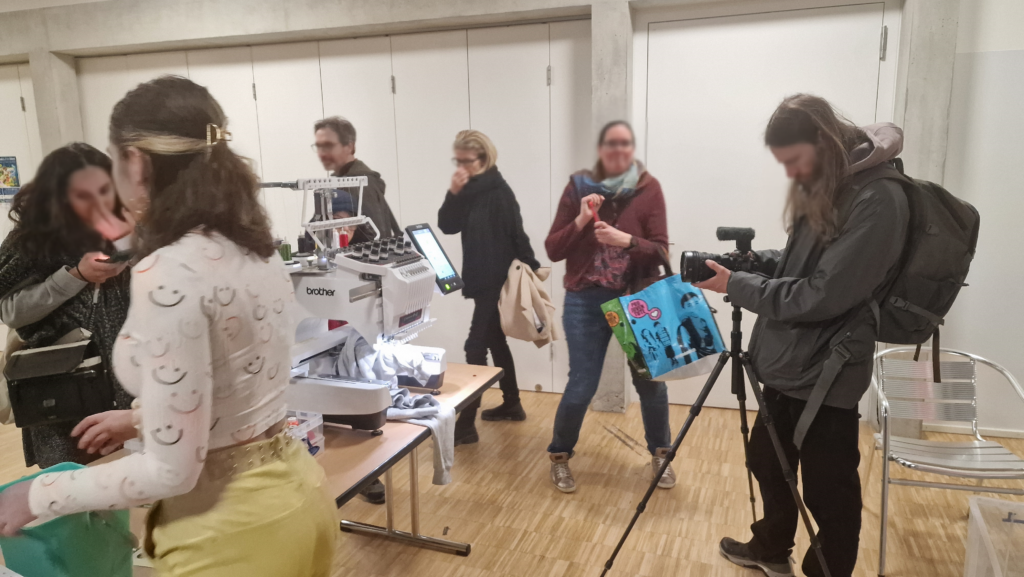

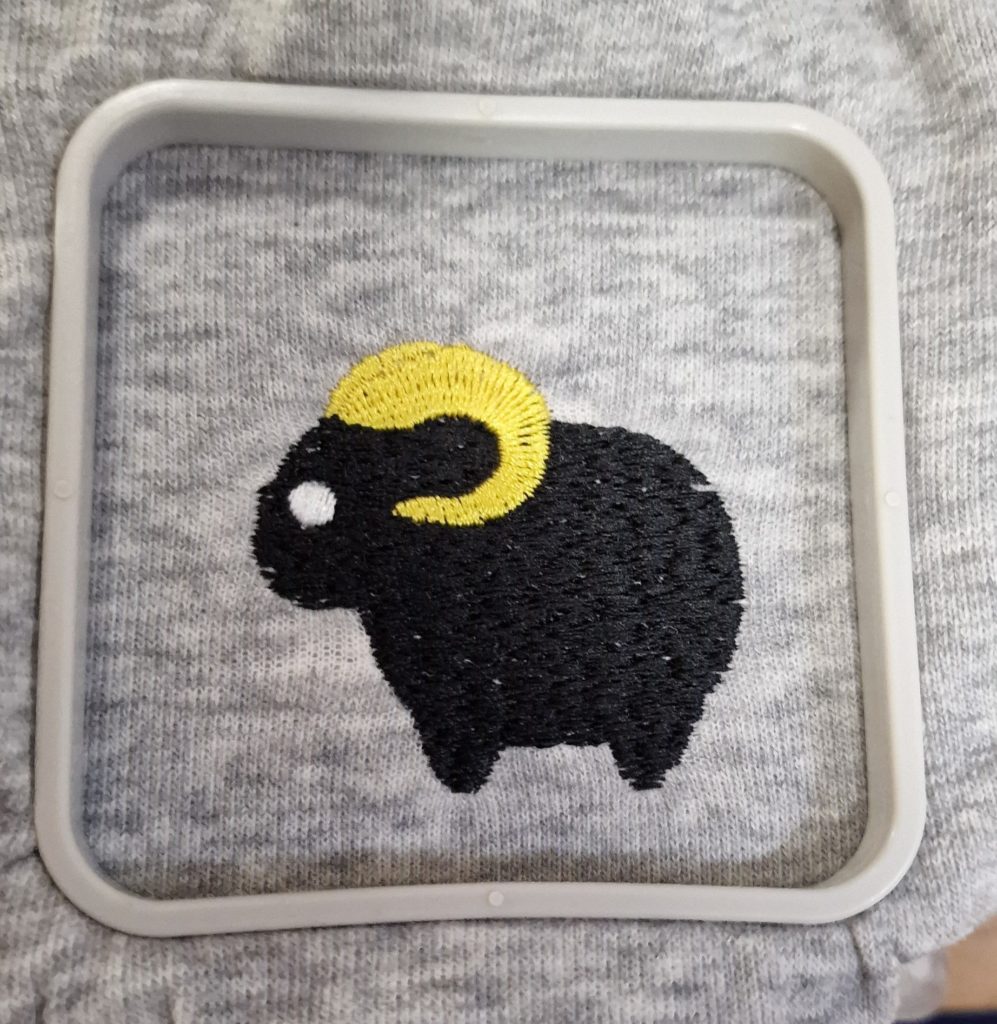
L’opération a été un succès dans l’ensemble. J’ai quelques réserves par rapport à l’intervention dans le CO (voir ce post sur le site du FacLab). Les enfants qui ont reçu une broderie étaient contents, mais les autres n’étaient pas assez stimulés durant l’activité. Aucun enfant a amené un vêtement à réparer et aucun a voulu prendre un vêtement de seconde main, donc pas le bon age ni la bonne population cible il me semble. D’après l’organisatrice, l’atelier qui le mieux marché était celui de la broderie main, ce qui n’est pas très étonnant, car les enfants ont été amenés à être actifs.
Les adultes étaient toujours intéressés et trouvaient le concept de surcyclage avec des broderies très intéressante. Beaucoup étaient également intéressés par les aspects techniques, ce qui renforce notre hypothèse comme quoi la broderie machine est un médium intéressant pour enseigner la littératie numérique. Notre choix d’emoji était approprié: les plus populaires étaient la planète, le tournesol, la trèfle et le cœur en flammes.
